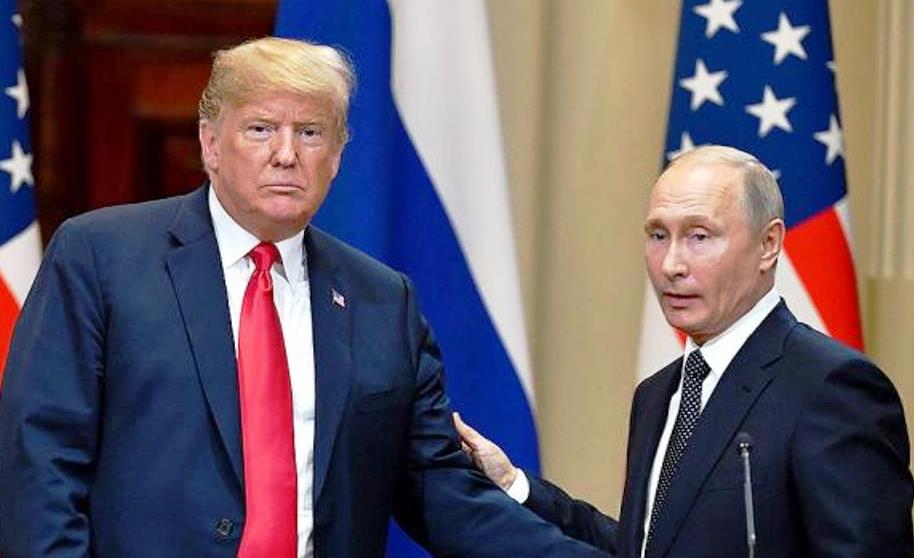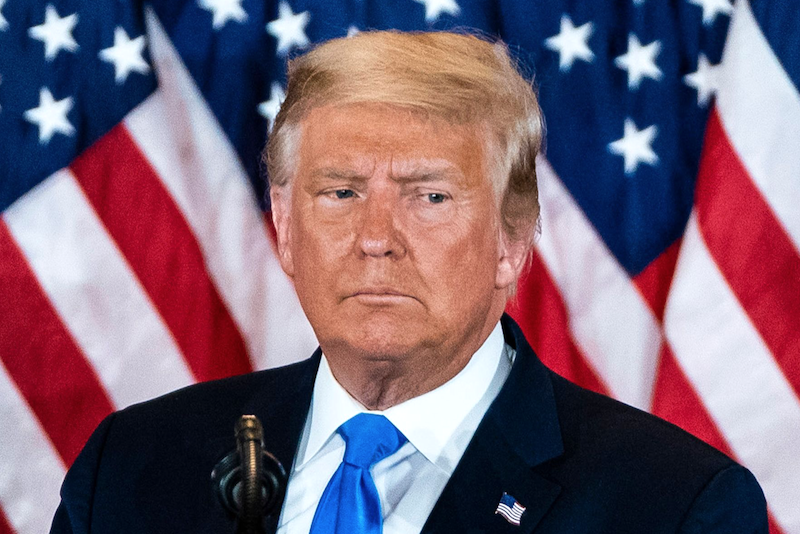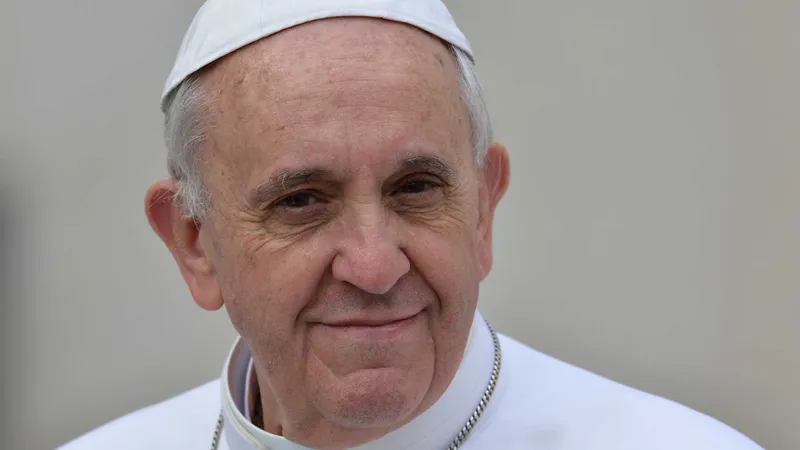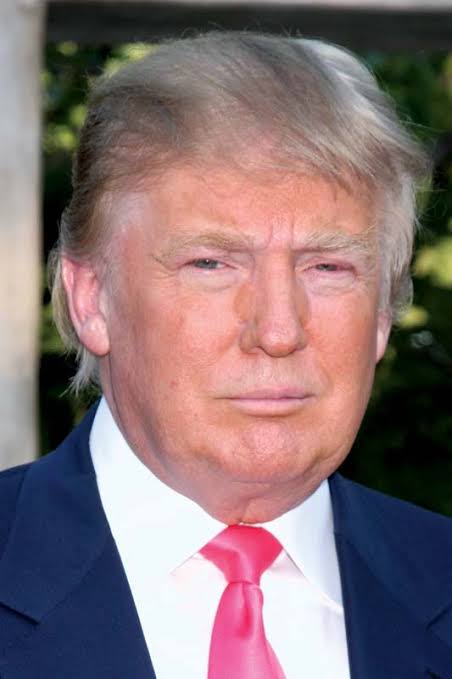What is life if not a series of experiments that drive innovation—the key to human progress?
For centuries, most of the world’s estimated 8.1 billion people across 195 nations (including the Holy See-Vatican and Palestine) have operated under democratic governance, a system established by Cleisthenes in Athens around 508-507 BC. Despite widespread adoption, democracy has not significantly improved wealth distribution—while the poor remain disadvantaged, the rich continue to amass more wealth.
A 2022 Oxfam report highlighted that, following the COVID-19 pandemic, “the world’s ten richest men more than doubled their fortunes from $700 billion to $1.5 trillion.” Within the same period, the report also indicated that “During the first two years of a pandemic that has seen the incomes of 99 percent of humanity fall and over160 million more people forced into poverty ” the masses have been victims.
Given these disparities, perhaps it’s time to explore alternative governance models that make the masses less poor—ones that might have been dismissed based on theory rather than real-world application.
For instance, monarchies in the Arabian Gulf (GCC countries) and China’s hybrid of communism in governance and capitalism in business have both fostered economic prosperity. This raises the question: should we experiment with a new system—Boligarchy—to determine whether it can improve the lives of the poor across the U.S., Europe, Asia, Africa, and other nations following the U.S. presidential system?
Rethinking Governance: Lessons from the U.S. Constitution
It is worth noting that the U.S. Constitution was not crafted by the entire citizenry but by a select group of 74 individuals, known as the Founding Fathers. Ultimately, it was ratified through elected representatives, solidifying its role as the foundation of American democracy.
During the 1776 Constitutional Convention, some Founding Fathers doubted the public’s ability to design an effective and enduring constitution. Influenced by Enlightenment thinkers—notably John Locke, Jean-Jacques Rousseau, and Montesquieu—figures like Alexander Hamilton and James Madison argued that governance should be led by a small, educated elite.
Hamilton, in particular, was skeptical of mass governance, believing that “the people are turbulent and changing; they seldom judge or determine right.” He advocated for a strong central government run by experienced leaders to maintain stability and shield the nation from the unpredictability of popular sentiment.
Madison, while sharing concerns about mob rule, took a more balanced approach. He believed a well-structured constitution should protect the rights of all citizens, including the general public.
Final Thoughts
Given these historical insights, should the world reconsider how it governs itself? If democracy has not substantially improved wealth distribution, could alternative models like Boligarchy offer a better path forward? The question remains whether disruptive leaders like Donald Trump and Bola Tinubu represent a necessary shift—or merely chaos within existing systems.
Madison’s Perspective and the Rise of ‘Boligarchy’
James Madison once wrote, “The people are the only legitimate fountain of power, and it is from them that the constitutional charter, under which the several branches of government hold their power, is derived.”
Despite concerns about the capability of the common people, the Founding Fathers ultimately established a representative democracy rather than a direct one. This system ensured that citizens would elect representatives to make decisions on their behalf, rather than governing directly. Although some Founding Fathers harbored doubts about the masses’ ability to govern, the U.S. Constitution was designed to uphold democratic values and the fundamental principle that government power originates from the people’s consent.
Trump’s Election and the ‘Boligarchy’ Debate
Following this logic, Donald J. Trump was elected by over 77 million Americans in the November 5, 2024, presidential election, defeating his opponent, former Vice President Kamala Harris. Given this, labeling Trump’s administration as a ‘Boligarchy’ may not be entirely justified.
After all, some Founding Fathers favored oligarchy to an extent, and many were themselves wealthy elites, similar to Trump and his circle of billionaire allies. This raises the question: Is the U.S. returning to its historical roots? If the nation’s early leaders were billionaires, why should there be resistance to having wealthy figures in power today?
For nearly 249 years, America has practiced democracy in its purest form, yet poverty remains unresolved. If leaders from non-elite backgrounds have failed to close this gap, does it not make sense to explore alternative approaches?
Parallel Disruptions: The U.S. and Nigeria
While the U.S. remains the world’s wealthiest and most powerful nation, Nigeria stands as Africa’s most populous country. Nigeria’s 1979 switch from the British parliamentary system to the U.S. presidential system further reinforces the historical influence of American governance.
At this moment, both countries are led by disruptors—President Donald Trump in the U.S. and President Bola Tinubu in Nigeria. Although both leaders face significant opposition, they can be described as positive disruptors rather than destructive narcissists like Adolf Hitler. Their leadership styles challenge traditional norms in an effort to provide citizens with a new approach to governance.
From Admiration to Controversy
Interestingly, both Trump and Tinubu have experienced a shift from national admiration to intense criticism.
• Trump, once widely beloved as the host of The Apprentice, became a divisive figure when he entered politics. The political establishment sought to prevent his rise but failed. Even after winning elections, he remains under constant attack from opposition supporters.
• Tinubu, similarly, was once revered for his role as the face of NADECO, a pro-democracy movement against Nigeria’s military dictatorship. However, his political career has since drawn strong resistance from critics.
Despite the backlash, both leaders remain committed to disrupting conventional governance and implementing alternative leadership models that challenge entrenched systems.
The Shift from Admiration to Criticism
During his tenure as Governor of Lagos State (1999-2007), Bola Tinubu was widely respected. However, once he declared his presidential ambitions, a segment of the electorate turned against him, leading to a wave of criticism and resentment.
Today, both Donald Trump and Bola Tinubu have become two of the most vilified leaders in the United States and Nigeria. The intense backlash they receive stems from their bold, unconventional, and often radical governance strategies. Their efforts to reshape existing systems into new political and economic models have earned them nicknames and criticism from opponents who view their leadership as disruptive.
Nicknames Reflecting Their Governance Styles
• Trump has been labeled a threat to democracy and the head of a ‘Boligarchy’—a government run by billionaires for billionaires. This perception was reinforced when Elon Musk, the world’s richest man, was appointed to lead the newly created Department of Government Efficiency (DOGE), a role that involves cutting federal jobs through buyouts.
• Tinubu, on the other hand, has been dubbed ‘T-Pain’ (Tinubu Pain) due to the economic hardships resulting from his policy reversals. These policies, aimed at dismantling past economic structures, have caused short-term suffering for Nigerians, further fueling public frustration.
Even before his January 20 inauguration, Joe Biden had already labeled Trump’s administration a Boligarchy, arguing that Trump’s billionaire-filled cabinet would govern in an oligarchic manner—contrary to democracy’s core principles of governance by and for the people. With Elon Musk and other tech billionaires holding significant influence in Trump’s administration, the Boligarchy theory seems to have materialized.
Historical Parallels: Disrupting Established Systems
Throughout history, seemingly stable systems and institutions have been challenged and restructured when they outlive their effectiveness.
• The United Nations (UN) was formed in 1945, following the end of World War II, to foster global cooperation. However, the rise of BRICS—a coalition led by Brazil, Russia, India, China, and South Africa—suggests that nations from the Global South are seeking alternative global leadership structures to counterbalance the UN’s Western-dominated influence.
• Before BRICS, there was the Concept of Medium Powers, a movement championed by Prof. Bolaji Akinyemi in the 1980s. As a former Director-General of the Nigerian Institute of International Affairs (NIIA) and later a Foreign Minister, Akinyemi proposed a coalition of mid-sized nations to challenge global superpowers. Though this initiative did not replace the UN, it demonstrated an ongoing push for reform in international governance.
Resistance to Change and the Future of Governance
While BRICS and the Concept of Medium Powers have yet to disrupt the UN’s global influence, their emergence signals growing dissatisfaction with the status quo. Change in the global order is long overdue, yet it continues to be resisted by those benefiting from the existing system.
Similarly, the backlash against Trump and Tinubu reflects a broader resistance to shifts in political and economic power structures. Critics fear that modifying democracy could weaken its foundations, much like the concerns raised in Why Nations Fail, co-authored by Daron Acemoglu (2024 Nobel Laureate in Economics) and James Robinson. However, history suggests that evolution in governance is inevitable, even if it is met with initial resistance.
Trump, Musk, and the Transformation of Governance
Following Donald Trump’s victory in the November 2024 election, Prof. Daron Acemoglu, an MIT economist, reflected on the state of American democracy in an article titled “The Fall and Rise of American Democracy.” In December 2024, he argued that democracy in the U.S. has increasingly failed to deliver on its core promises, in part because the Democratic Party had shifted its focus toward elite interests rather than working-class concerns. To regain its footing, he suggested, the party must reconnect with its working-class roots.
Elon Musk and the Technological Reinvention of Democracy
Trump’s policy direction appears to harken back to the founding principles of American democracy in 1776. However, unlike in the past, technology now plays a key role in reshaping governance.
One of the most striking developments is the involvement of Elon Musk, widely regarded as the leading tech innovator of our time, in U.S. politics. Musk, who revolutionized the automobile industry with electric vehicles (EVs) and disrupted space exploration through SpaceX, has now turned his attention to reforming democracy—an institution that, remarkably, has remained largely unchanged since its origins in ancient Athens (508-507 BC).
Musk’s entry into the public sector echoes the strategies used by leaders like Lee Kuan Yew, who transformed Singapore from a developing nation into a global economic powerhouse by integrating top private-sector talent into governance. Trump’s business background likely played a role in attracting Musk, in contrast to Bill Gates, another former world’s richest man, who has focused on philanthropy rather than direct political involvement.
Musk’s Expanding Political Influence
Musk’s political involvement has extended beyond the U.S., sparking controversy across Europe and South Africa:
• In the UK, Prime Minister Keir Starmer has criticized Musk for interfering in British politics.
• In France and Germany, right-wing politicians have embraced him, seeing his influence as an asset.
• In South Africa, Musk’s influence has reportedly triggered tensions between Trump and South African President Cyril Ramaphosa. Even Julius Malema, a fiery South African politician, has entered the debate by reviving controversial historical grievances related to apartheid-era policies that Musk allegedly finds troubling.
It is unsurprising that Musk’s integration into Trump’s “America First” agenda has caused significant pushback from Democrats, who have organized rallies against his political involvement, arguing that he was never elected. The backlash has also extended to European leaders, who see his influence as a threat to traditional political structures.
The Rise of Nationalism and the Decline of Globalization
Trump’s strict immigration policies—including tightening border security, ending birthright citizenship (Birthism), and cutting foreign aid (USAID)—reflect a global shift toward nationalism, mirroring trends in the UK, France, Germany, and other parts of Europe. This shift marks a departure from the era of globalization, which began in the 1820s, accelerated in 1914, and was formally named in 1983 by economist Theodore Levitt.
The current political climate bears similarities to historical periods of nationalistic realignment, such as the events described in 1 Kings 12:16 in the King James Bible, where people rejected central authority and sought self-determination.
Trump and Tinubu: Parallel Reforms in the U.S. and Nigeria
Trump’s efforts to restructure the U.S. government bear a striking resemblance to Bola Tinubu’s economic and political reforms in Nigeria.
• Tinubu has pursued bold economic measures, including:
• Ending fuel subsidies (a long-standing drain on government resources).
• Floating the naira (allowing market forces to determine its value).
• Raising electricity tariffs to reflect actual costs.
• Proposing tax reforms through four bills currently stalled in the legislature.
While Trump has relied heavily on executive orders to push through his agenda, Tinubu has largely worked through the legal and legislative process, making his reforms slower and more contentious. The only major policy Tinubu has enacted by executive fiat so far is the removal of fuel subsidies—a move that has faced strong opposition but aligns with his broader “Renewed Hope” agenda.
Conclusion
Both Trump and Tinubu represent a new wave of political disruptors who are challenging established systems in their respective countries. Their governance styles have polarized public opinion, yet they remain committed to overhauling outdated structures. Whether their bold reforms will ultimately succeed or face insurmountable resistance remains to be seen. However, one thing is clear: the world is witnessing a significant shift in governance, where technology, nationalism, and economic pragmatism are increasingly shaping political decisions.
Executive Orders, Bureaucratic Resistance, and Historical Parallels
Donald Trump’s extensive use of executive orders has enabled him to bypass the traditional legislative process, which is typically responsible for making laws. However, in a democracy governed by checks and balances, the judiciary remains the only institution capable of restraining the executive branch by issuing court orders to suspend the implementation of presidential directives.
This dynamic is evident in the recent judicial blocks on three of Trump’s executive orders:
1. Ending birthright citizenship (Birthism).
2. Halting U.S. foreign aid (USAID).
3. Offering early retirement buyouts to federal civil servants as part of the Department of Government Efficiency (DOGE) initiative aimed at reducing government size.
Elon Musk’s Role in Bureaucratic Overhaul
Despite these legal setbacks, Elon Musk, the tech billionaire behind Tesla, SpaceX, The Boring Company, and Neuralink, remains committed to transforming Washington’s bureaucracy. Now deeply involved in government through his role in DOGE, Musk aims to eliminate inefficiencies—a mission consistent with his Silicon Valley mindset of disrupting outdated systems.
Both established politicians and new reformers acknowledge that bureaucratic inefficiencies contribute to America’s massive $36.22 trillion national debt. However, like the proverbial saying “everyone wants an omelet, but no one wants to break an egg,” career politicians are resisting Trump’s efforts to restructure government, despite agreeing on the need for change.
Modern day Political Thinker Francis Fukuyama, known for his works on democracy and governance (e.g., State-Building: Governance and World Order in the 21st Century), likely did not anticipate a transformation of this magnitude under Trump’s leadership.
Parallels Between the U.S. and Nigeria: Trump’s DOGE vs. Tinubu’s Oronsaye Report
Trump’s DOGE initiative to streamline government mirrors Nigeria’s Oronsaye Report, a comprehensive review of governance costs led by Steve Oronsaye, a former Head of Service of the Nigerian government. The report, commissioned during Goodluck Jonathan’s administration (2011-2012), aimed to reduce Nigeria’s bloated recurrent expenditure, which has consistently overshadowed capital investment, leading to a national debt of about N140 trillion.
The 2025 Nigerian budget, currently under legislative review, proposes N54 trillion in expenditures, with over N16 trillion earmarked for debt servicing. While President Bola Tinubu has officially approved the Oronsaye Report, its implementation has been delayed, likely due to:
1. Strategic timing—Avoiding multiple simultaneous economic shocks after policies like:
• Fuel subsidy removal
• Naira flotation (leading to massive currency devaluation)
• Electricity tariff hikes
2. Public resistance—Widespread economic hardship makes mass civil service layoffs politically risky.
Global Bureaucratic Reforms: A Recurring Challenge
Interestingly, the struggle to reform government inefficiencies is not unique to Nigeria or the U.S. Similar efforts have been attempted—and often resisted—throughout history:
• Reagan’s Grace Commission (1982):
• Commissioned to eliminate waste in government.
• Reagan famously instructed the team to “drain the swamp” and “leave no stone unturned.”
• Led by businessman J. Peter Grace, it sought to cut inefficiencies in federal spending.lncidentally like Mr.Grace was a businessman like Musk, not a bureaucrat.
• Clinton’s Government Reinvention (1993):
• Aimed to make government cheaper and more efficient.
• 277,000 federal workers were laid off.
• A $25,000 buyout was offered—similar to Trump’s current proposal.
• Ultimately, bureaucratic pushback prevented long-term success.
Conclusion
Whether in the U.S. under Trump or Nigeria under Tinubu, efforts to streamline government and reduce inefficiency continue to face institutional resistance. However, Trump’s aggressive approach, backed by Musk, stands in contrast to Tinubu’s more measured strategy, likely influenced by Nigeria’s economic realities.
Ultimately, while bureaucratic reform is a global challenge, history suggests that without sustained political will, such initiatives often get shelved—just like Nigeria’s Oronsaye Report and Reagan’s Grace Commission.
Trump and Tinubu: Disruptive Leadership and Resistance to Change
Perhaps in the future, once Nigeria’s economy stabilizes, President Bola Tinubu may fully implement the Steve Oronsaye Report to streamline ministries, departments, and agencies (MDAs), reducing the cost of governance, much like Donald Trump’s Department of Government Efficiency (DOGE) initiative in the U.S.
One key similarity between Trump and Tinubu is their speed, depth, and urgency in introducing and implementing policies. Just as Tinubu’s sudden removal of the fuel subsidy during his inaugural speech shocked Nigerians, Trump’s declaration in his own inauguration speech—affirming that the U.S. Constitution recognizes only male and female genders—came as a blow to the LGBTQ+ community. Trump has since followed up with an executive order banning biological males from competing in female sports, a move that has intensified debates on gender identity in America.
Understanding Trump’s Leadership Approach Beyond Political Narratives
Despite the widespread perception of Trump as a controversial and polarizing figure, many fail to objectively analyze his leadership style. Instead, much of the discourse around Trump and Tinubu are shaped by the narratives of their political opponents, which have successfully influenced mainstream opinion. However, a closer examination reveals that Trump’s and Tinubu’s policies often follow the principles of common sense—especially when addressing issues like budget deficits and government inefficiencies.
Governments facing ballooning fiscal deficits naturally look for ways to cut excess spending, and downsizing the public sector, as envisioned by DOGE and Oronsaye Report, are common private-sector strategy that have rarely been tested in government. Trump, now in his second and final term, has only four years to implement his paradigm shift, making it reasonable to allow him to experiment with his policies and assess their impact.
Tinubu too is in the mid-term of his first term and has all the time to change tack in the unlikely event that his current approach,if diligently pursued fails.
The Resistance to Change in Democratic Systems
It is worth questioning why Western democracies, particularly in Washington and Europe, insist on practicing democracy in its traditional Greek form, with minimal modifications beyond the refinements introduced by Enlightenment thinkers like John Locke, Jean-Jacques Rousseau, and Montesquieu. Historically, establishment elites have resisted change—just as they are now pushing back against the pair of Trump’s and Tinubu’s governance approach.
The struggle to redefine democracy is not unique to developing nations like those in Africa, which only began embracing democracy in the 1950s. Even in established Western democracies, there is increasing tension between traditional governance models and modern political realities. Factors contributing to the perceived weakening of democracy include:
1. The rise of populism, which challenges elite control.
2. The rapid spread of information through social media, accelerating political awareness and mobilization.
Some scholars argue that democracy is experiencing “disconsolidation” and “erosion,” leading to confusion and resistance among traditionalists, who struggle to adapt to the evolving political landscape.
Policy Wins and Setbacks: Trump vs. Tinubu
In Nigeria, some of Tinubu’s reforms have been well received, particularly:
• The National Education Loan Fund (NELFUND): Offers interest-free loans for university students, expanding access to higher education.
• Local Government Financial Autonomy: A Supreme Court ruling now mandates that federal allocations go directly to local governments, bypassing state governments. This ensures funds reach the grassroots level rather than being controlled by state executives.
Similarly, Trump’s notable policy wins include:
• Clarifying that the U.S. Constitution recognizes only two genders (male and female).
• Delaying the TikTok ban, which had been imposed by the Supreme Court under Biden’s administration in its final days.
However, both leaders have faced significant policy roadblocks:
• Three of Trump’s executive orders—abolishing birthright citizenship, offering early retirement buyouts, and cutting U.S. foreign aid (USAID)—have been struck down by the courts.
• Tinubu’s proposed tax reforms, aimed at creating a comprehensive framework for economic restructuring, have stalled in parliament, where lawmakers struggle to find a middle ground amid divisive debates.
The Challenge of Disruptive Leadership
The struggles of Trump and Tinubu highlight a fundamental truth: disrupting entrenched systems is always met with fierce resistance. Leaders who attempt to overhaul traditional governance structures are often criticized, demonized, and dismissed as reckless or radical. This pattern is consistent throughout history—visionary disruptors are rarely appreciated in their time.
However, if Trump’s and Tinubu’s governance experiments ultimately prove beneficial to a majority of citizens, they will likely be celebrated in retrospect. For now, both leaders remain at the center of intense political storms.
My instinct suggests that history may eventually vindicate both Trump and Tinubu.
Magnus Onyibe, a public policy analyst, author, democracy advocate, development strategist, alumnus of the Fletcher School of Law and Diplomacy, Tufts University, Massachusetts, USA, and a former commissioner in the Delta State government, (2003-2007) sent this piece from Lagos, Nigeria.
To continue with this conversation and more, please visit www.magnum.ng.
![Russia vs Ukraine war: Zelenskyy not ready for peace – Trump [VIDEO]](https://thenewsguru.ng/wp-content/uploads/2025/03/Screenshot-2025-03-01-at-7.04.38-AM.png)






